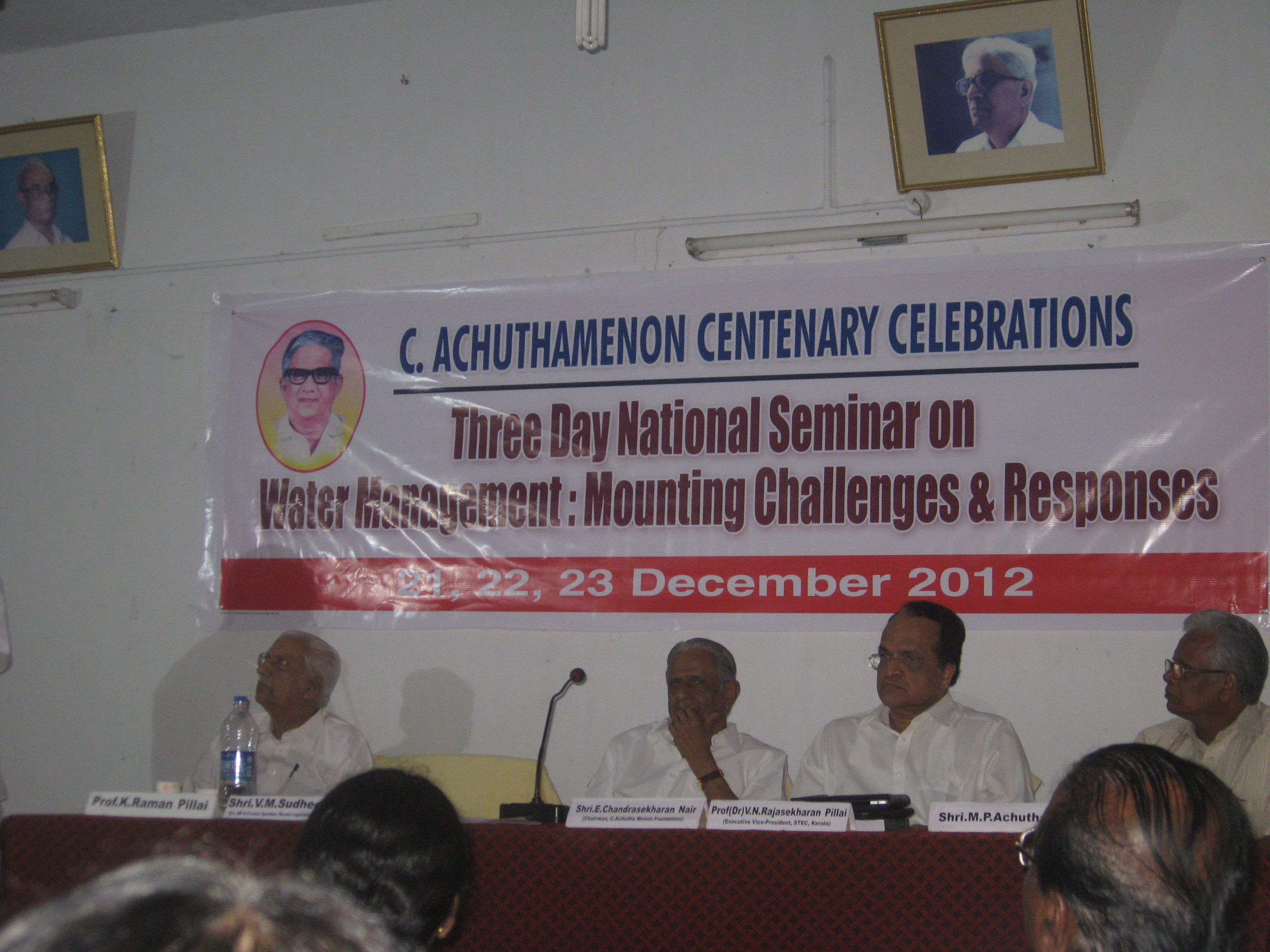Contamination, Pollution and Quality
Why participatory groundwater management is no longer an oxymoron: The story of Randullabad
Posted on 15 Apr, 2013 06:04 PMIndia is heavily dependent on groundwater use. Domestic use, agriculture and industry all rely on groundwater extracted by means of pumps, wells and tanks. This dependence is illustrated by falling groundwater levels. Frequently, this overuse and consequent decline trigger conflicts.

Expanding access to improved water sources through watercredit - A report on the stakeholders engagement forum, organised by water.org, New Delhi,19th February 2013
Posted on 22 Mar, 2013 09:33 PMUday Shankar from water.org welcomed the audience and introduced the issue of access to safe water and sanitation. Gary White, water.org, set the tone of the seminar by explaining his organisation’s vision of ‘getting safe water’ for everyone.

Residents of Khandwa in Madhya Pradesh, resist public private partnership in their water supply project- A press release by Manthan Adhyayan Kendra
Posted on 20 Mar, 2013 09:58 AMThe bad track record of the public sector to provide water has increasingly led to private sector participation in water supply system. The proponents of privatization state that private sector would increase efficiency, bring adequate finance and help build the infrastructure that is required to run the utilities properly in an effective manner.

Traditional household water purification methods practised by rural communities in developing countries - A compilation by the Encyclopedia of Life Support Systems
Posted on 19 Mar, 2013 09:15 PMThis article published in the Encyclopedia of Life Support Systems includes a collation of traditional household water purification methods practised by rural communities in developing countries.
River water quality data by Central Pollution Control Board (2005)
Posted on 19 Mar, 2013 06:41 PMAgainst this backdrop, this document by the Central Pollution Control Board (CPCB) elaborates on the river water quality in India. The Central and State Pollution Control Boards / Pollution Control Committees in Union-Territories of India are responsible for restoration and maintenance of the wholesomeness of aquatic resources.
Model Groundwater Bill lays responsibility for protecting the resource from contamination primarily with the states concerned - Roundup of the week’s news (March 11- March 17, 2013)
Posted on 18 Mar, 2013 05:23 PMthe drought situation in Maharashtra, the traditional rainwater harvesting system in Rajasthan. Besides this, the news also includes reports on the campaign to save the Loktak lake in Assam and mangroves in Sundarbans, the water supply schemes in Kerala and the dropping of groundwater levels in India
New bill to control groundwater exploitation
Experiences from a civil society initiative to restore stretches of toxic Yamuna: Report of a conference organised by PEACE, Thames River Restoration Trust and WWF India at New Delhi in March 2013
Posted on 16 Mar, 2013 09:12 PMDr Peter Spillet of the Thames River Restoration Trust shared that the Trust was the recipient of the 2010 Theiss International Riverprize funds on behalf of many organizations involved in the restoration work on river Thames in United Kingdom. He said that the Trust had shared the money for twinning projects in various countries including in India.
Water management - Mounting challenges and responses - A report on the three day seminar jointly organised by KSCSTE and C Achutha Menon Foundation, Trivandrum from the 21st to the 23rd December 2012
Posted on 14 Mar, 2013 10:12 PMThis three day national seminar was jointly organised by the Kerala State Council for Science, Technology and Environment (KSCSTE), Thiruvananthapuram, and the C Achutha Menon Foundation (AMF), Thiruvananthapuram, Kerala and included presentations and discussions on a range of water related themes such as water scarcity, water conservation, commercialisation of water, water conflicts and water management.
The seminar aimed at creating awareness and triggering a dialogue among scientists, academicians, researchers, activists, as well as lay people on the emerging challenges related to water resources, water quality and water conservation in the state of Kerala. The seminar was inaugurated by Shri V M Sudheeran, Ex MP and former speaker, while Dr Rajasekaran Pillai, Executive Vice President KSCSTE, delivered the keynote address with the felicitation by Shri M P Achuthan, MP.
The seminar included discussions under five different themes related to water issues that included water scarcity, water conservation, commercialisation of water, water as an new area for conflicts and water management.

The three day seminar on water management at the Achuta Menon Foundation, Trivandrum, Kerala
Engineer, activist, Mahant, 'Hero of the Planet' Veer Bhadra Mishra is no more
Posted on 14 Mar, 2013 11:17 AM






